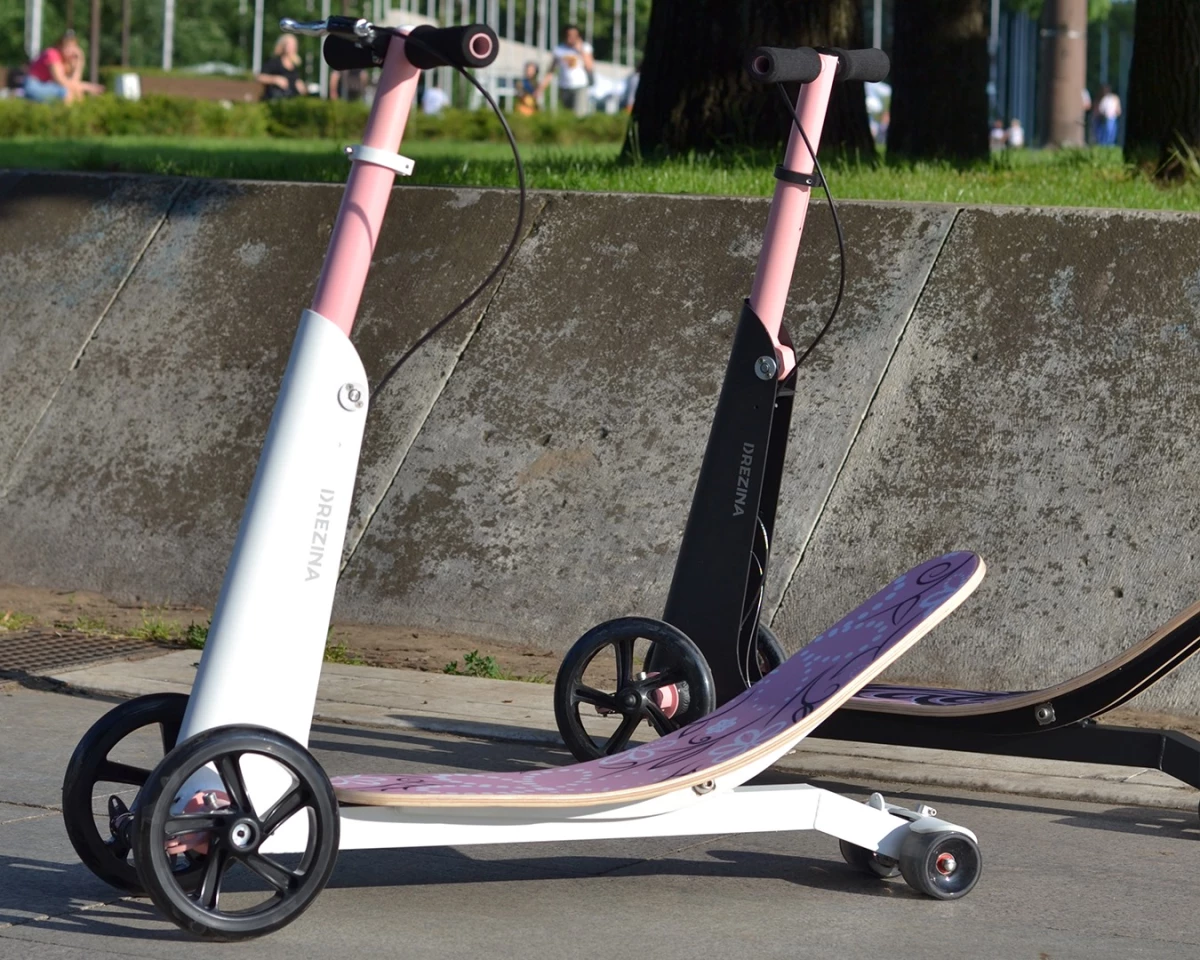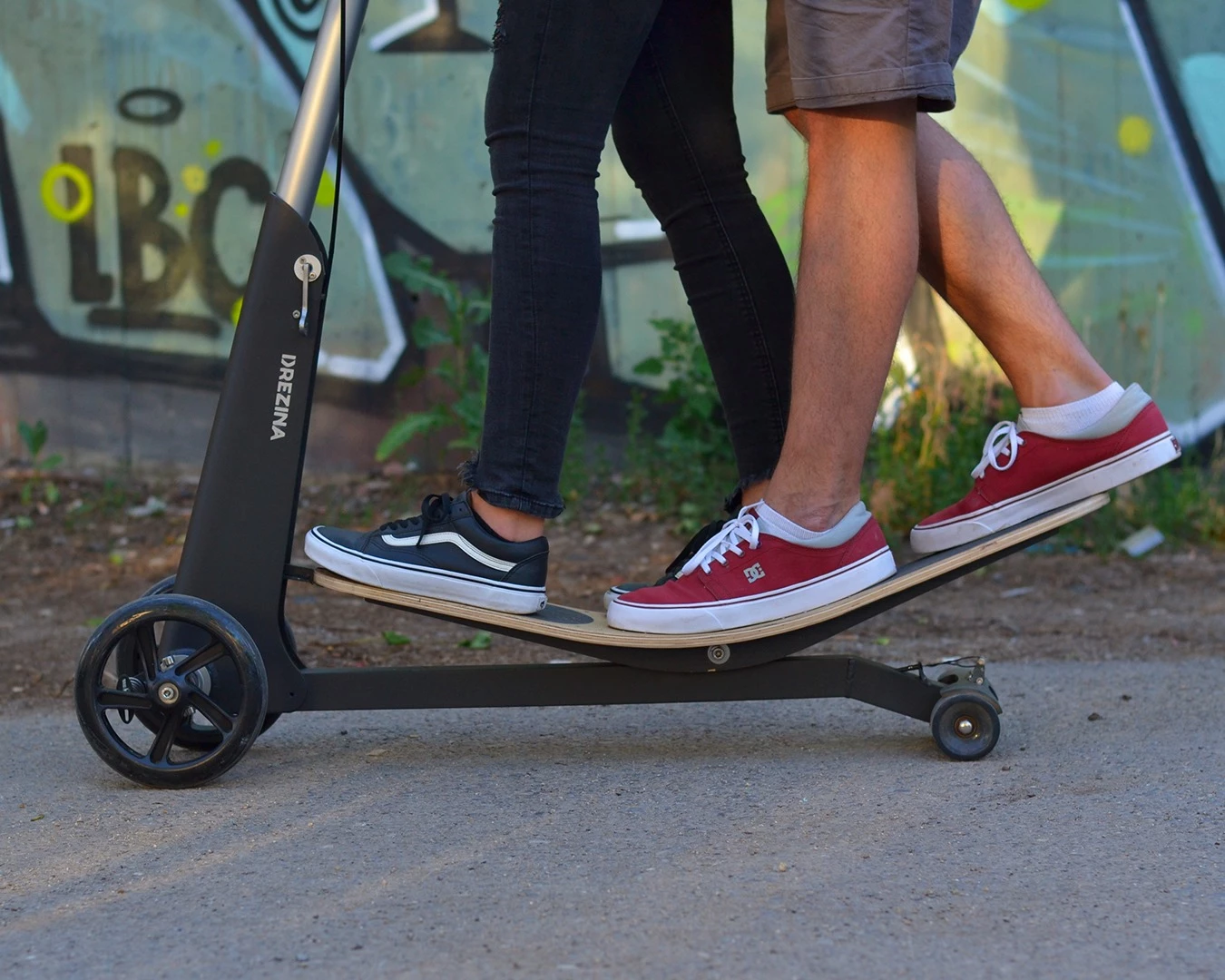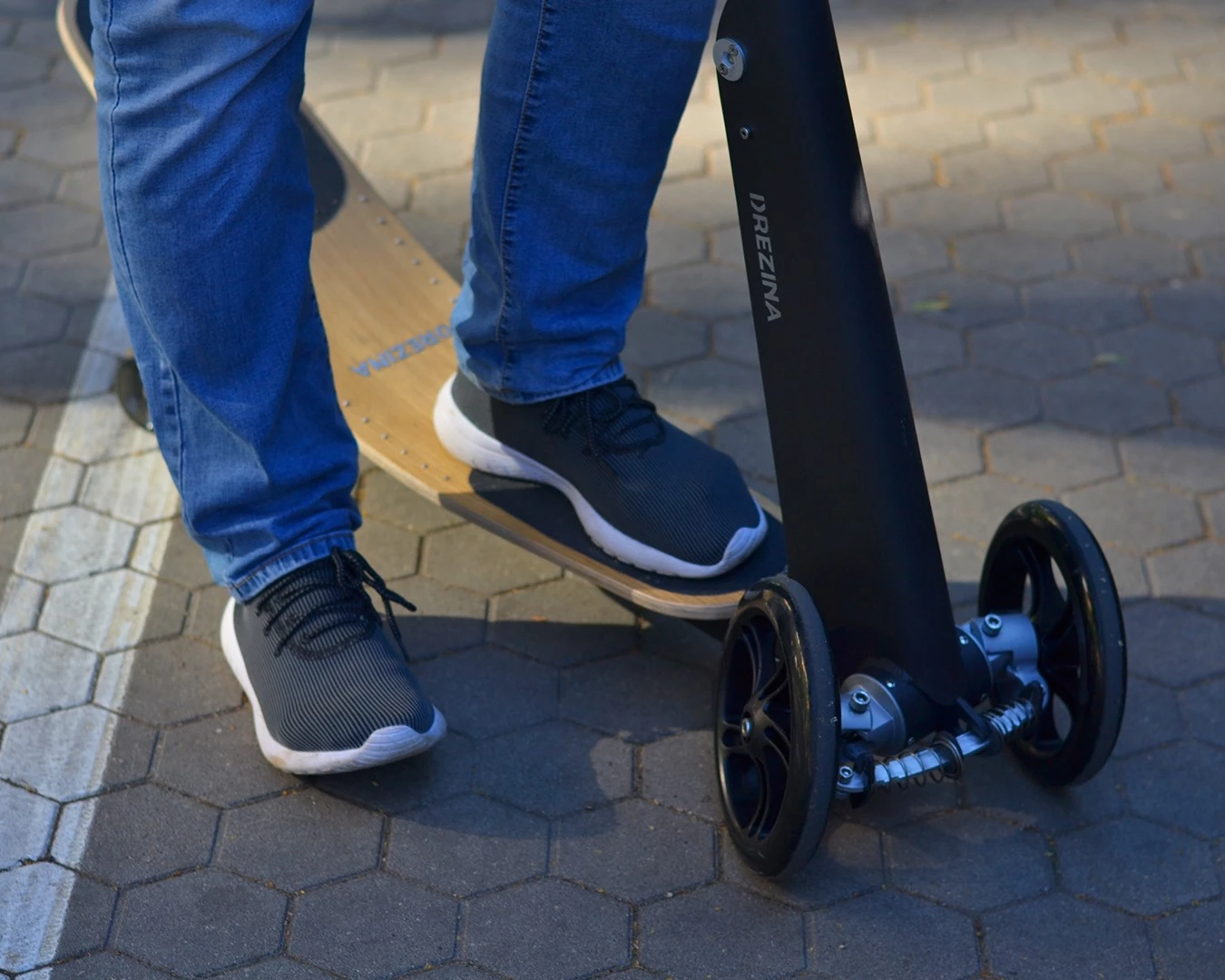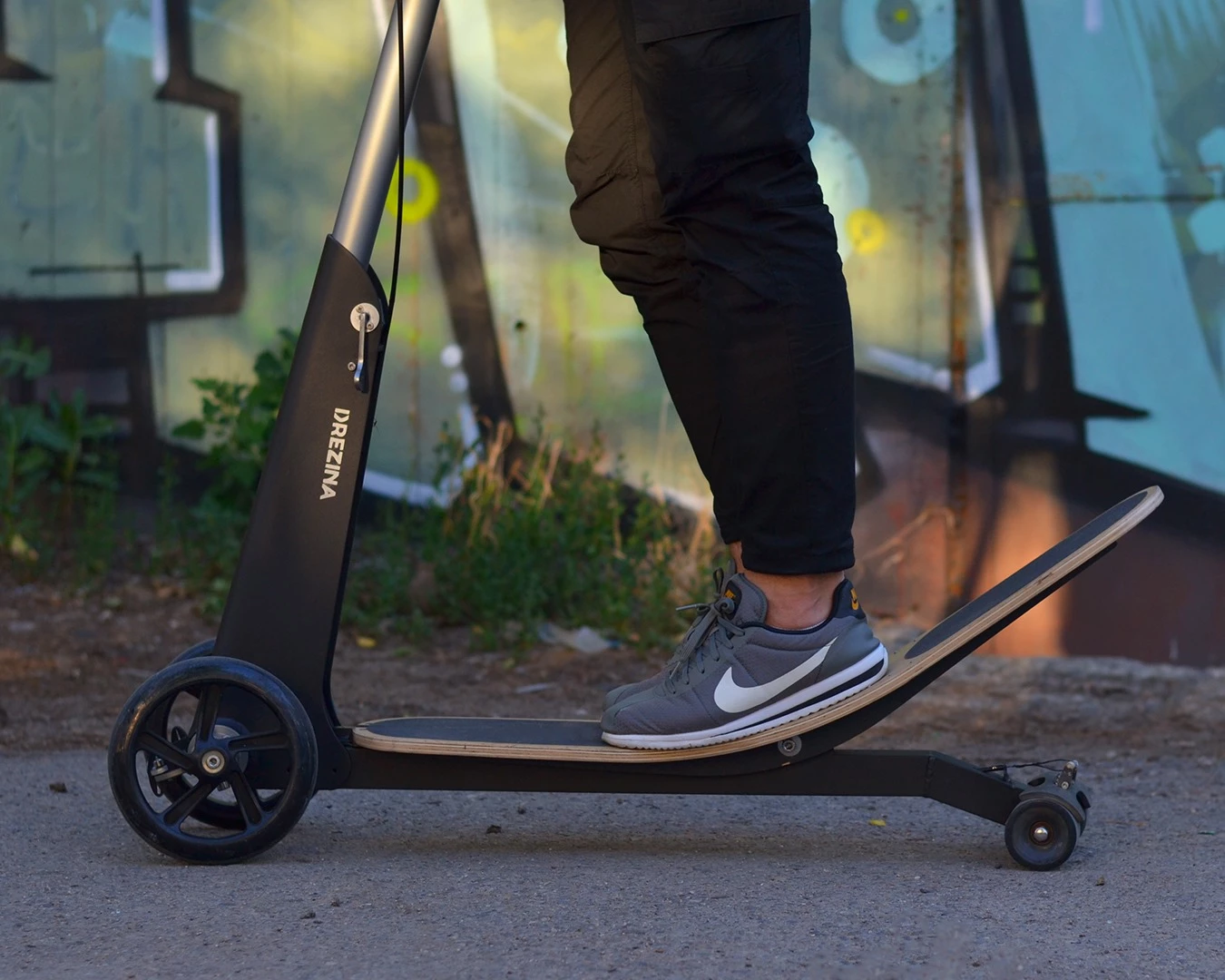Unless it's electric, a scooter is usually propelled by kicking one foot against the ground. That's not the case with the Drezina, though, which is moved along by rocking its curved skateboard-like deck up and down.
Designed by Bulgarian entrepreneur Angel Stoyanov, the Drezina features an aviation-grade aluminum frame, adjustable-height fold-down handlebars, dual polyurethane front and rear wheels, and an oak- or beech-veneered curved plywood deck.
The midsection of that deck is attached to the scooter's frame via a pivot, plus its front end is linked to a dual-chain drive mechanism in the front "tower" of the scooter. Therefore, as the rider stands on the deck and rocks it to move its front end up and down, the chain drive spins up the front wheels – it does so as the front of the deck moves both up and down.

Riders turn the Drezina by shifting their weight to one side or the other, causing the front wheels to turn in that same direction. A spring-loaded linkage between those wheels keeps them from simply flopping from side to side. Stopping is achieved by squeezing a bar-mounted brake lever, which activates what looks like a drum brake in the rear wheels.
The whole thing reportedly tips the scales at 8 kg (17.6 lb) and is capable of speeds of up to 25 km/h (16 mph) – needless to say, though, that depends very much on the rider. Users can choose between riding with one foot on the front of the deck and one on the back, or placing both feet in the middle and flexing their ankles to move the deck.
Stoyanov even suggests that two children can ride the scooter together, one with both feet on the front of the deck and one with both on the rear. The vehicle's maximum total rider weight is rated at 100 kg (220 lb).
Should you be interested, the Drezina is currently the subject of an Indiegogo campaign. Assuming it reaches production, a pledge of US$249 will get you one. The planned retail price is $629. You can see it in action, in the video below.
The discontinued Rockboard scooter offered similar functionality, although it had just two wheels, the rear of which was powered by pumping the metal deck up and down.








